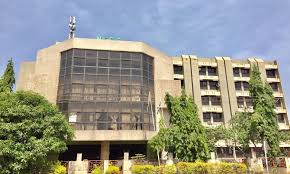The National Commission for Colleges of Education (NCCE) has closed 22 unaccredited Colleges of Education operating illegally across Nigeria. The development was revealed in the commission’s latest performance report, which outlined ongoing efforts to sanitize the education sector.
According to the report, the shutdown followed a nationwide clampdown on institutions awarding certificates without proper authorization. The commission stressed that the measure was necessary to safeguard the credibility of Nigeria’s educational system.
Beyond the closures, the NCCE disclosed that it had also undertaken personnel audits and financial monitoring across all 21 federal Colleges of Education. These reforms, it said, form part of a wider strategy to ensure transparency, accountability, and quality in the management of teacher-training institutions.
This move aligns with President Bola Tinubu’s directive to education regulatory bodies—including the National Universities Commission (NUC) and the National Board for Technical Education (NBTE)—to intensify action against “illegal higher institutions” and certificate racketeers undermining national education standards.
Speaking at the 14th Convocation of the National Open University of Nigeria (NOUN) in Abuja, the President—represented by Rakiya Ilyasu, Director of University Education at the Federal Ministry of Education—described such institutions as “certificate mills” and emphasized the urgency of restoring credibility to the system.
Tinubu further assured that his administration remains committed to strengthening collaboration among agencies such as the NUC, NBTE, NCCE, Joint Admissions and Matriculation Board (JAMB), and the National Youth Service Corps (NYSC). He noted that synergy among these bodies is critical in eliminating fraudulent academic practices and preventing cases of forgery, fake certificates, and unrecognized institutions.
Stakeholders in the education sector have welcomed the NCCE’s action, describing it as both timely and necessary. They warned, however, that closing the schools alone will not suffice. Education analysts called for prosecution of the operators of these illegal colleges to serve as a deterrent to others.
The crackdown marks another step forward in Nigeria’s fight against academic fraud. With sustained government backing and broader stakeholder collaboration, observers say there is renewed hope that the menace of illegal institutions can be decisively addressed—ensuring integrity and quality remain the foundation of Nigeria’s education system.


